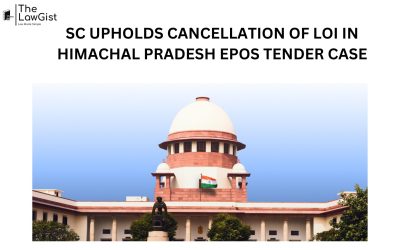
Supreme Court’s 2025 verdict clarifying FIR validity under the U.P. Unlawful Conversion Act.
SUPREME COURT ON U.P. RELIGIOUS CONVERSION LAW
CASE SUMMARY – The Supreme Court in Rajendra Bihari Lal & Anr. vs. State of Uttar Pradesh addressed petitions seeking to quash multiple FIRs alleging forced religious conversions under the U.P. Conversion Act, 2021. The Court examined the legality of FIRs lodged by non-victims and the issue of multiplicity of FIRs concerning the same incident. It held that while duplicate FIRs are impermissible, those filed by genuine victims are valid. The Bench emphasized the balance between protecting religious freedom and curbing unlawful conversions. The ruling clarified that procedural irregularities cannot nullify legitimate complaints under criminal law.
| ASPECTS | DETAILS |
| Case Title | Rajendra Bihari Lal and Another vs. State of Uttar Pradesh and Others – 2025 INSC 1249 |
| Introduction | The case concerns multiple FIRs registered under the Indian Penal Code and the Uttar Pradesh Prohibition of Unlawful Conversion of Religion Act, 2021. The petitioners sought quashing of these FIRs alleging mala fide registration and procedural illegality. |
| Factual Background | Several FIRs (224/2022, 47/2023, 54/2023, 55/2023, 60/2023, 538/2023) were filed alleging forced religious conversions at Fatehpur and Prayagraj. Petitioners included church officials and university members accused of coercive conversions through fraud and inducement. |
| Legal Issues |
|
| Applicable Law |
|
| Analysis | The Court examined the validity of FIRs, emphasizing that while duplicate FIRs on the same incident are impermissible, an FIR by a “competent aggrieved person” is valid. The unamended Section 4 restricted who could lodge FIRs, but procedural defects could not override substantive justice. |
| Conclusion | The Court upheld the maintainability of certain FIRs filed by genuine victims, noting that mass conversion allegations require investigation. However, it clarified that FIRs by unauthorized complainants could be invalid under the unamended Section 4. |
| Current Scenario | The matter reaffirms the constitutional and procedural framework for cases under the U.P. Conversion Act. The investigation continues under judicial supervision, ensuring balance between religious freedom and prevention of unlawful conversion. |
“Procedural defects cannot override substantive justice when the integrity of faith and freedom of conscience are at stake.”
SOURCE – SUPREME COURT OF INDIA
READ ALSO –
Discover insighs on Latin Maxims and Legal Glossary and simplify complex legal terms in seconds.The LawGist ensures exam success with quality Blogs and Articles on — Top Legal Picks (TLP), Current Affairs, latest Supreme Court judgments as Courtroom Chronicles. Backed by trusted resources and videos, The LawGist is every Professionals and Aspirant’s first choice. Discover more at thelawgist.org







